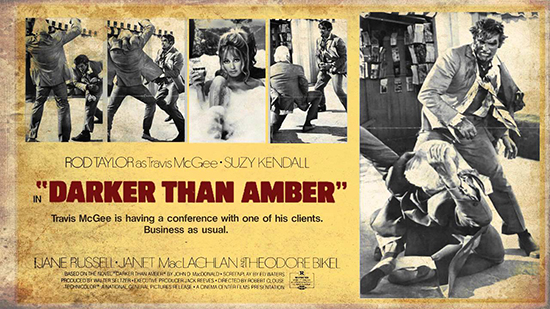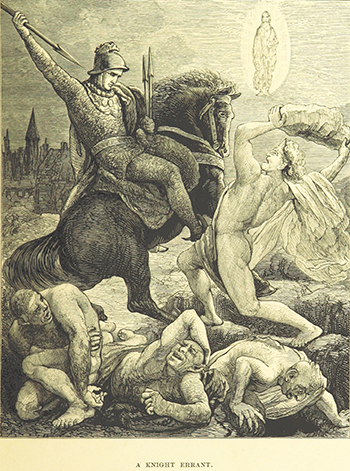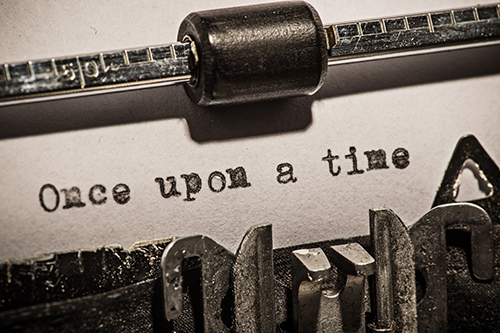OK, let’s talk about this knight errant thing
 Monday, June 25, 2018 at 02:36PM
Monday, June 25, 2018 at 02:36PM 
In thinking about a follow-up to my “why I write this stuff”, I kept circling back to the idea of the knight errant.
I’d certainly heard the term, maybe even as a kid when I was geeking out on all things Arthurian – as in Mary Stewart’s the Crystal Cave, which served as kind of a touchstone when I finally was old enough to understand (and laugh my ass off at) Monty Python’s Holy Grail. So I figured this knight errant thing had something to do with that, though it always seemed like a weird term – shouldn’t it be the other way? Errant Knight? And how did Don Quixote fit into all this? And Batman?!! Wait, I’m confused.
Chill. All we become clear... enough.
So the term translates as: “a medieval knight wandering in search of chivalrous adventures.” Simple enough, Arthur and his pals, doing good deeds, slaying dragons, saving damsels, eating whole turkey legs and drinking a lot of mead. Oh, and patrolling the streets of Gotham to search for, and beat the hell-crap out of any hoods and ne'er-do-wells. I for one wish for the word ne'er-do-well to return.

Anyway – how did we get from Lancelot to Batman? And what about Quixote again? (Ok, ok, I’ll return to him.)
The answer for me lies in the reason I write this stuff.
Bad shit goes down in our broken world all the time. Some writers have taken this bad shit, and made epic tales of good staring down evil – and this often goes down in a whole different world (think Tolkien and Lord of the Rings), or a very similar world (think of Stephen King’s, The Stand). A question, to stay with those 2 books for a second, is who stands up to the evil? Well, Frodo, Sam, and quite a few others in LOTR, and maybe Tom, Nick and Stu Redman in the Stand. I use these not as examples of knight errants, but more as showing those people that stand (get it?) in the way of evil, and say, uh-uh, not today mo-fo!
Why do they do it? Because it is the right thing to do. Because they are inherently good people. Because truth, justice, kindness, and chocolate must prevail! Ok, maybe not chocolate. Fuck it, why not CHOCOLATE?!
At the heart of this is this question, “why right the wrongs?” In acting speak (2/3 of my kids are actors), “what’s the motivation, man?” Like why should I right the wrong? Like what for man? And why am I talking like a 70s druggie surfer from a bad B-movie? Man.
The question of why right the wrongs fascinates me. It is why I love John D MacDonald’s Travis McGee. He is out there righting all kinds of wrongs, and pocketing a tidy bit of change for himself (after solving complicated financial schemes that really only high level CPA’s and maybe Macdonald himself understands… maybe!). And lest you think old John D. didn’t mean for McGee to be a knight errant, he only mentions it about a half dozen times in every book.
“a knight in rusty armor with a broken lance and swaybacked steed, fighting for what he fears are outdated or unrealistic ideals” John D.
Of course Travis is called a modern-cynical knight errant (maybe it’s the cash he keeps for himself, or it could be the buckets of gin he drinks onboard the Busted Flush with his buddy Meyer.)
(That's him above in the movie poster for Darker Than Amber, a film I have a fondness for, as one of the few made out of the McGee novels.)
But I love this sort of knight even more. Go back some decades and you have Chandler’s Marlowe striving to bring justice to a “wronged and fallen universe” – or push the cynicism, the alcohol, and the bad-assery further and you get C.W. Sughrue (James Crumley). Sughrue might do the right thing eventually but not until he’s outdrank, outsmoked, outsnorted, every asshole in the room – chivalrous? Um… sure.
I could go on about my favorite knight errant duo, Joe R. Lansdale’s, Hap and Leonard - but I’ll save that for another post.
For me, exploring crime fiction and the creation of my own knight, Luke Fischer, has brought me back to the question: why make wrongs right?
Maybe that’s too simple of a question, but then ask yourself, who do you know who is out there tilting at windmills? (See, told you I’d come back to it).
"Fortune is guiding our affairs better than we ourselves could have wished. Do you see over yonder, friend Sancho, thirty or forty hulking giants? I intend to do battle with them and slay them. With their spoils we shall begin to be rich for this is a righteous war and the removal of so foul a brood from off the face of the earth is a service God will bless."
"What giants?" asked Sancho Panza.
Okay, this post is getting long, so I’ll wrap up. But don’t you love Sancho here? Um, Don, I know you’re all quixotic and shit, but, uh those giants are actually in your imagination.
I had a great reader for my new Luke Fischer novel (you know who you are), and they kept asking me the same, and valuable, questions – so why does Luke want to help, why does he want to make things better, what drives him?
A short answer is: restoration. At the centre of every great story from crime fiction to fantasy to the Bible... things need to be restored. And we need someone to do it. We need the foul brood removed from the earth (or the shire perhaps), so we can restore the world… get it back to normal… or the new normal.
You know what we need? We need a knight errant.
Thanks for reading, love to hear your comments on your favourite knight errant.





